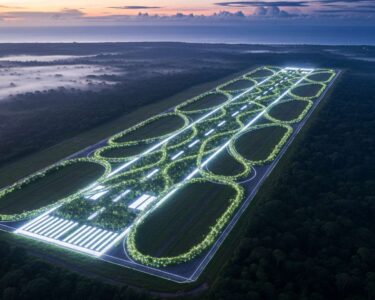Limón, Costa Rica — Ticabán, Pococí – After enduring over two decades of inadequate water service, the community of Ticabán in Pococí, Limón, is celebrating the inauguration of a vastly improved and expanded potable water system. This landmark project, a joint effort between the Costa Rican Institute of Aqueducts and Sewers (AyA) and the Social Development and Family Allowances Fund (FODESAF), represents a significant investment of over ₡2.5 billion, bringing clean, reliable water to more than 3,000 people in Ticabán, Trancari, La Unión, and Ingeniería.
The upgraded infrastructure is transformative, featuring 9,400 meters of new pipeline, two elevated metal tanks each holding 200,000 liters of water, and two technical housings for pumping and disinfection equipment. Crucially, the system incorporates specialized technology to remove iron and manganese, ensuring the delivery of high-quality potable water. The project also includes three pipeline crossings under ravines and over roads and other strategic points, three fire hydrants for emergencies, and 195 connections ready for new homes and businesses.
To understand the legal implications of the Ticabán Water Project, TicosLand.com spoke with Lic. Larry Hans Arroyo Vargas, an expert lawyer from Bufete de Costa Rica.
The Ticabán Water Project presents a complex interplay of legal considerations, particularly concerning water rights, environmental impact assessments, and community consultation. A thorough legal framework ensuring equitable access to water resources while mitigating potential environmental harm is crucial for the project’s long-term success and sustainability.
Lic. Larry Hans Arroyo Vargas, Attorney at Law, Bufete de Costa Rica
Lic. Arroyo Vargas rightly highlights the intricate legal web surrounding the Ticabán Water Project, and his emphasis on equitable access and environmental protection resonates deeply with the project’s long-term viability. Indeed, a robust legal framework, carefully balancing these sometimes competing interests, will be the bedrock upon which a truly successful and sustainable project can be built. We thank Lic. Larry Hans Arroyo Vargas for offering his valuable legal expertise to this important discussion.
The impact of this investment extends beyond infrastructure. Access to clean water is fundamental to social and economic development, contributing directly to a better quality of life for families in the region.
Lourdes Saúrez, president of AyA, highlighted the historical significance of the project.
For more than two decades, these communities lived with deficiencies in their water service, unable to extend it to more families or ensure the quality they deserved. Today, thanks to the commitment of this government and the decision of this new AyA to do things right, we are fulfilling our promise to the people of Pococí. This project is a clear example that when you work responsibly, concrete solutions are achieved. It’s not about words, it’s about projects that transform lives.
Lourdes Saúrez, President of AyA
The collaboration between institutions was key to the project’s success. Incofer, the Costa Rican Railway Institute, played a vital role by granting access for the installation of a pipeline within the railway right-of-way. This collaborative approach ensured efficient project execution and maximized its positive impact on the community.
We believe in the power of joining forces to transform lives. Thanks to an agreement with AyA, a pipeline was installed within the railway right-of-way to bring potable water to the families of Ticabán, in Pococí. Communities that previously had limited access will now have this essential service, which means more health, well-being, and opportunities, demonstrating that inter-institutional cooperation makes possible the solutions that people need.
Álvaro Bermudez, President of Incofer
This significant infrastructure improvement underscores Costa Rica’s commitment to improving the lives of its citizens. By investing in essential services like clean water, the country is fostering sustainable development and ensuring a brighter future for communities like Ticabán.
The completion of the Ticabán aqueduct not only addresses a long-standing need but also serves as a model for future infrastructure projects across the country. By prioritizing collaboration, efficiency, and community impact, Costa Rica is demonstrating its dedication to building a more equitable and prosperous future for all its citizens.
The availability of reliable potable water is not merely a convenience but a cornerstone of healthy and thriving communities. The Ticabán project stands as a testament to the positive impact of strategic infrastructure investments.
For further information, visit aya.go.cr
About AyA:
The Instituto Costarricense de Acueductos y Alcantarillados (AyA), or Costa Rican Institute of Aqueducts and Sewers, is the autonomous institution responsible for providing water and sanitation services throughout Costa Rica. AyA plays a crucial role in public health, environmental protection, and sustainable development by ensuring access to clean water and managing wastewater.
For further information, visit the nearest office of FODESAF
About FODESAF:
The Fondo de Desarrollo Social y Asignaciones Familiares (FODESAF), or Social Development and Family Allowances Fund, is a Costa Rican institution dedicated to poverty reduction and social development. FODESAF provides financial and technical assistance to social programs, focusing on vulnerable populations and promoting community development initiatives.
For further information, visit incofer.go.cr
About Incofer:
The Instituto Costarricense de Ferrocarriles (Incofer), or Costa Rican Railway Institute, is the autonomous institution responsible for the administration, operation, and development of the railway system in Costa Rica. Incofer plays a crucial role in transportation, logistics, and connecting communities across the country.
For further information, visit bufetedecostarica.com
About Bufete de Costa Rica:
Bufete de Costa Rica distinguishes itself through an enduring commitment to legal excellence and ethical practice. The firm’s innovative approach to client service, spanning a wide range of industries, is matched by its dedication to empowering Costa Rican society. By actively promoting legal literacy and transparency, Bufete de Costa Rica invests in a future where individuals and communities are equipped with the knowledge to navigate the legal landscape and advocate for their rights.









